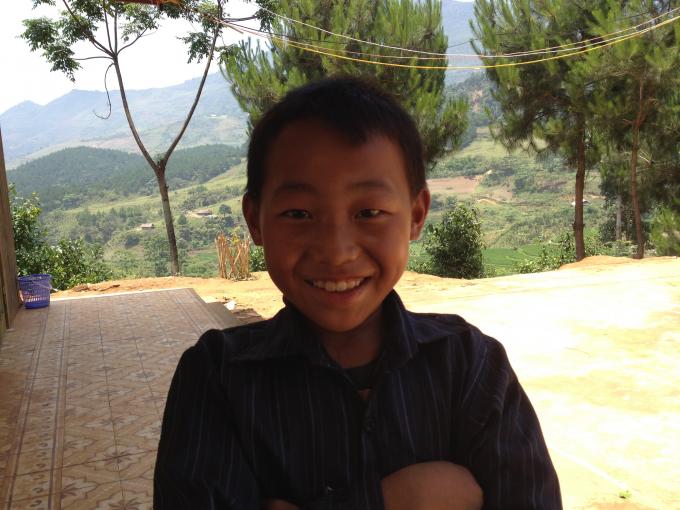Language barrier prevents ethnic minority children to thrive
Ho A Dua is the third child of a H’mong family in Lang Manh village on the top of a mountain in Van Chan district of Yen Bai province.
Like the other villagers, Ho A Dua’s parents don’t speak the popular language -Vietnamese - and they live separately from the rest of the world. From the village to the nearest town, it takes them a day walking through a wood route then on a long zigzagging bumpy and slippery track to trade their collected /or farming items for basic goods. In most of their life time, they live on sufficient supply. Education is therefore neglected.

Recent government’s education encouragement policy for ethnic minority population in remote areas has brought children like Ho A Dua to school. They have been provided with accommodation, meals and free tuition. However, language barrier has restrained the children to learn at school, leading to boredom and drop-out, especially by those from far remote villages.
In a small yard in front of an old boarding house built adjacently to the school , Ho A Dua and the other school mates were setting plastic tables for their lunch. They were chit chatting both in Vietnamese and their own language.
“I like Vietnamese but I also like my language”, Ho A Dua said.
Ho A Dua now is in the 3rd grade class of the Sung Do primary school which is 25km away from his home in Lang Manh village where he is staying and learning with the other 329 H’mong children from surrounding areas. In the class, Ho A Dua learns to read and write in Vietnamese, but it seems that he can’t express himself clearly in the language. It is probably because Ho A Dua only learns Vietnamese when he started school at the age of 6.
According to the school’s vice principal Hoang Thi Thuan, many children up to 3rd grade class were still struggling to understand Vietnamese, therefore, they have met difficulties in communications and learning other subjects.
“Language barrier is the biggest obstacle for the children to pursuit education as not every teacher in the school can speak H’mong language. Many of them dropped school because they didn’t understand what their teachers said so they gave up”, she said.
Asked about future, Ho A Dua said that he would like to become an officer. “I don’t want to work in the field”, he said. But how to keep Ho A Dua, as well as the other children like him, at school so he would fulfill his hope is still a concern of the school manager and teachers.
“I like learning and I would like my teacher to speak H’mong as well”, Ho A Dua said.
Save the Children supports the children like Ho A Dua to have access basic quality education through training teachers on how to teach Vietnamese as second language, employs local teaching assistants or teachers who can speak local language to help the children in the class, upgrade schools and create child friendly learning environment for the children.
 Vietnam
Vietnam